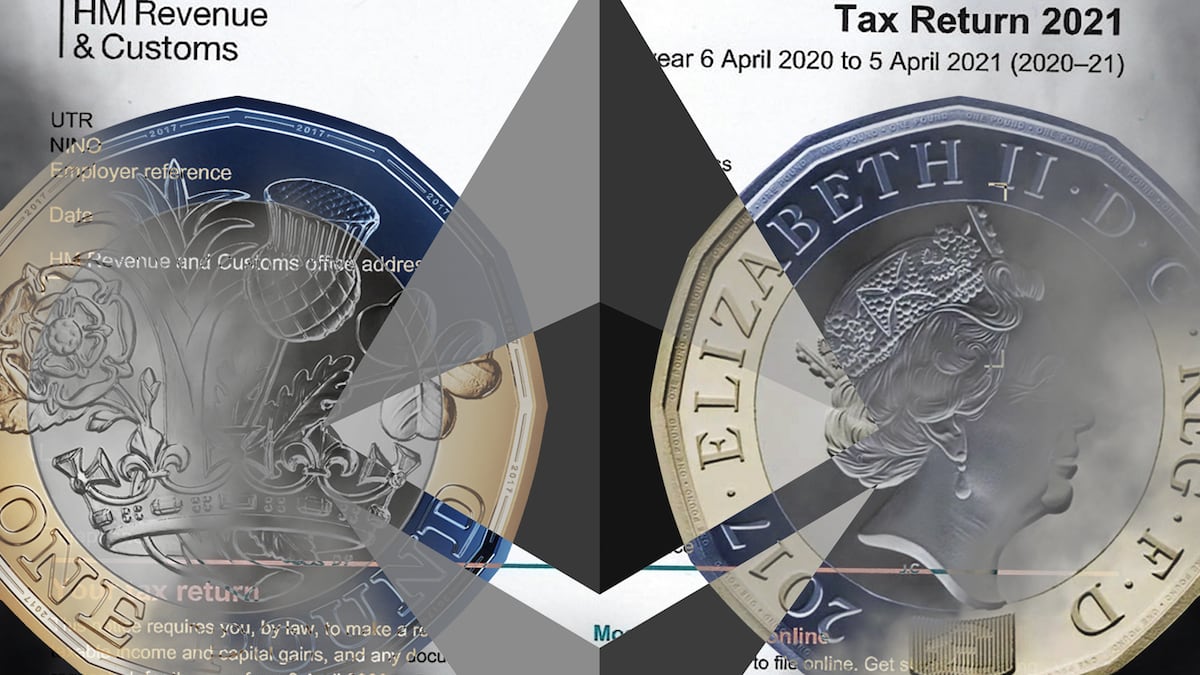DeFi’s borderless nature doesn’t exempt its users from tax obligations in most jurisdictions. And for UK-based DeFi participants, the window to optimise their taxes is rapidly closing, as tomorrow marks the end of the 2022-2023 tax year.
In the UK, if you make a profit by selling an asset at a higher price than what you paid for it, this is called a capital gain.
You can make up to £12,300 of capital gains each year before you have to pay tax on them. If your total gain is higher than that, you can use capital losses — when you sell an asset for lower than you bought for — to reduce the amount of tax you owe.
NOW READ: Recovering scammed assets should be easier with blockchain data but it’s not
“As we approach the tax year end, it’s important to understand whether you can claim relief on tax losses that can be set off against capital gains,” Danny Talwar, head of tax at crypto tax software company Koinly, told DL News.
But Talwar cautioned that many crypto investors are not aware of the so-called bed and breakfasting rules, which prohibit crypto holders from claiming tax relief if they sell and repurchase assets within a 30-day period.
That means that if you sell ETH at a loss on April 5 to reduce your tax liability for the 2022-2023 tax year, you cannot buy ETH again on April 6. You will need to wait for at least 30 days to do so.
NOW READ: Waves founder’s role in lost $530m raises questions about who’s to blame
But there’s much uncertainty whether the bed and breakfasting rules apply to different versions of the same asset, such as WETH, or wrapped Ether, a token version of ETH commonly used in DeFi.
“HMRC [hasn’t] commented on the specific tax treatment of wrapping tokens,” Talwar said. “The conservative approach would be to treat this as a disposal event but the confusion arises as WETH is substantially the same asset as ETH, but with additional characteristics to be used on non-native blockchains.
“It is more clear that where an investor purchases a different crypto asset such as ETH into BTC or USDC — in such cases, the bed and breakfasting rules do not apply since the asset is not the same.”
NOW READ: CZ revamped Binance lobbying operations in the run-up to the CFTC suit
It isn’t only holding cryptocurrencies that are subject to tax.
HMRC released specific DeFi guidance in early 2022, establishing DeFi activities like liquidity provision, yield farming and lending as taxable events. Although most crypto activities are subject to capital gains tax — like profit from stock sales — some are subject to income tax — like dividend income in traditional finance.
Sometimes the same activity can fall under either category depending on the specifics. DeFi lending and staking can be subject to capital gains or income tax. Different treatment affects how much tax is owed.
Complexity in DeFi tax isn’t limited to whether the activities amount to income or gains.
“Often there can be challenges in working out correct market values, timing of when to take market value and actually being able to record or demonstrate ownership,” Talwar said. But that’s no excuse for not filing taxes.
“It’s wise not to underestimate the powers that tax authorities have to obtain information related to your crypto transactions,” he said.
HMRC can cross-check taxpayers’ annual crypto transactions against the data provided by crypto exchanges like Coinbase and Binance. The exchanges are obligated to disclose user data to HMRC if they have UK customers.
In November 2021, HMRC began sending “nudge letters” to UK tax residents who haven’t declared their crypto gains.
Hey @CryptoSavingExp I just got this letter from HMRC. any chance of a guide on how to calculate your tax liabilities on your crypto gains? It would be helpful. pic.twitter.com/q95Do3hdSS
— Tom Dixon (@TomD74) December 12, 2021
Crypto investors will be subject to a few changes starting next year.
From the tax year 2024-2025, crypto will be separated out on the capital gains pages of the self-assessment forms, and more dramatically, the annual exempt amount for capital gains tax will be reduced to £3,000 from the current £12,300 exemption.
That calls for a lot of capital losses to claim — as long as you wait for 30 days to repurchase the same crypto.



